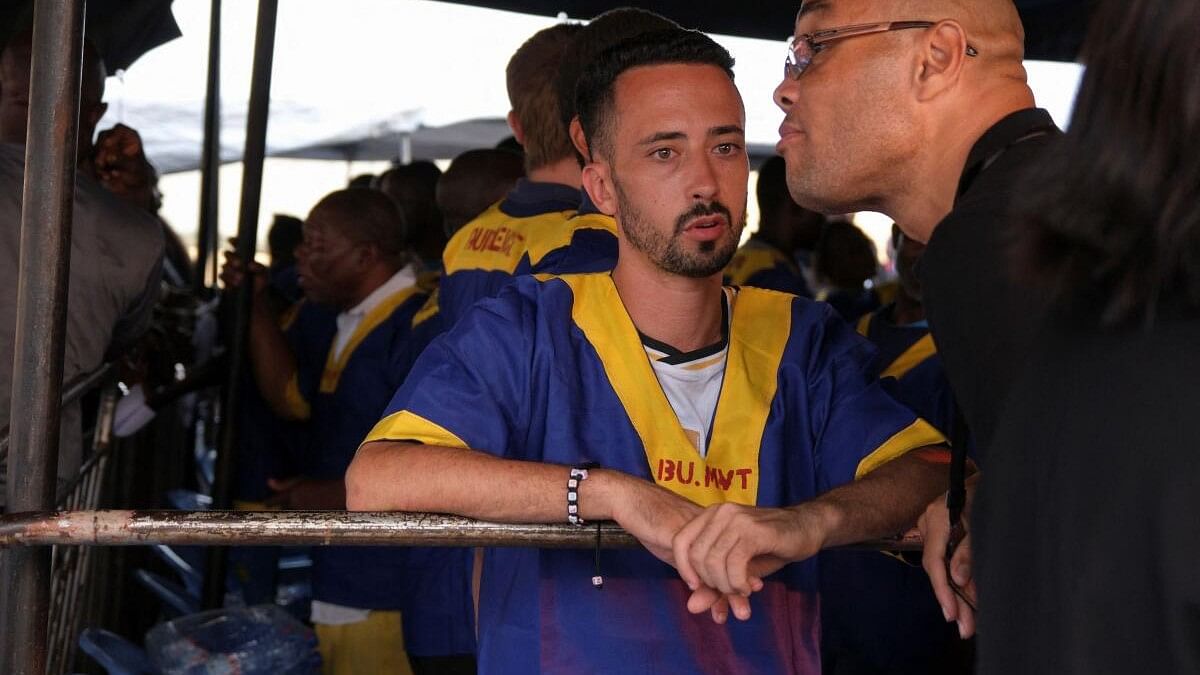
Three US citizens sentenced to death in Congo over role in failed coup, in Kinshasa.
Credit: Reuters Photo
Three US citizens were among 37 people sentenced to death Friday for their role in a coup attempt in Congo four months ago.
In an attempted coup May 19, which the military of the central African nation said it had foiled, three people were killed in a gunfight near the presidential palace and armed men briefly occupied an office of the presidency.
The coup leader, Christian Malanga, an opponent of the Congolese government who ran a minor opposition party, livestreamed the attack before security forces killed him. His son, Marcel Malanga, was among those who received the death penalty, along with his high school friend Tyler Thompson. Both are US citizens in their 20s.
In July, Marcel Malanga told the court he was not involved in planning the coup and that he and Thompson had been forced to join in while visiting his father.
"Dad had threatened to kill us if we did not follow his orders," Reuters quoted him as saying.
The 37 people were convicted of criminal conspiracy, terrorism and other charges, while 14 others were acquitted. The third American, Benjamin Zalman-Polun, was a business associate of Christian Malanga.
Among those convicted was Jean-Jacques Wondo, a prominent researcher of political and security issues in Africa's Great Lakes region and a dual citizen of Congo and Belgium.
Military officers have seized power in several African nations in the last four years, riding waves of public dissatisfaction with elected leaders, who are often seen as corrupt, self-interested and anti-democratic.
Christian Malanga called his movement New Zaïre. Congo was rechristened Zaïre by its longtime president, Mobutu Sese Seko, who seized power in a 1965 coup, before the country reverted to its previous name in 1997.
In a video filmed in the president's offices before he was killed, Malanga accused the president, Felix Tshisekedi, of "doing stupid things." Dressed in military fatigues, boots and, in at least one case, flip-flops, a few dozen of his men waved his flag, featuring a hand carrying a torch.
The verdict was read out at the military prison where the defendants were being held on the outskirts of Kinshasa, the capital, and it was broadcast on Congolese television. Dressed in blue-and-yellow prison uniforms, they listened to their fate from the pen erected for them in the prison yard. The Americans sat together on blue plastic chairs, occasionally whispering to each other.
Although Congo has never abolished the death penalty, there was a moratorium on executions for over two decades. But in March, the government announced it would start executing people again, a decision that human rights organizations condemned.
Tshisekedi has called the country's justice system "sick."